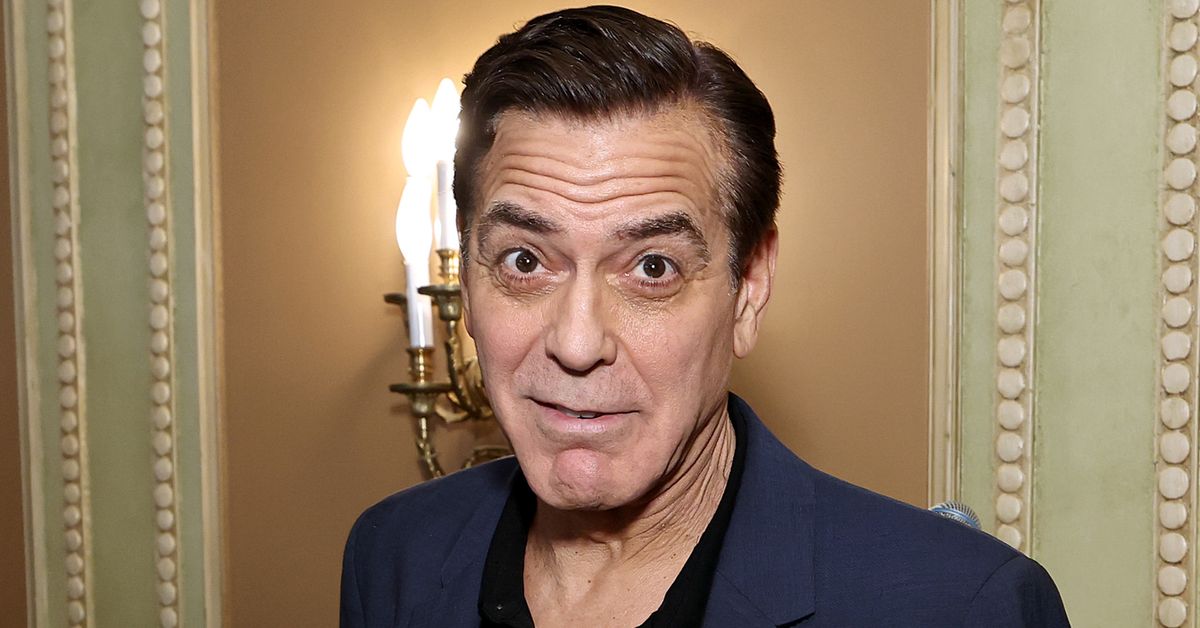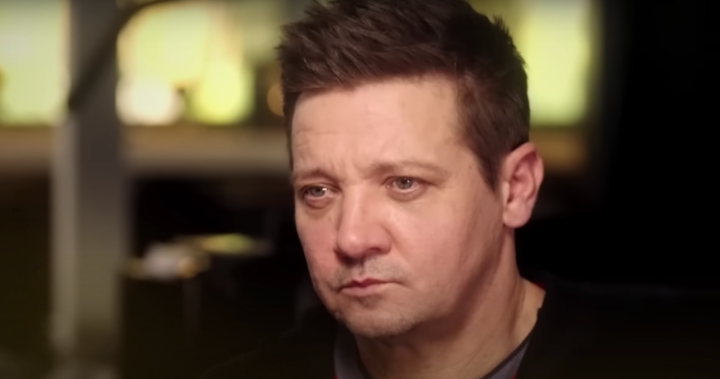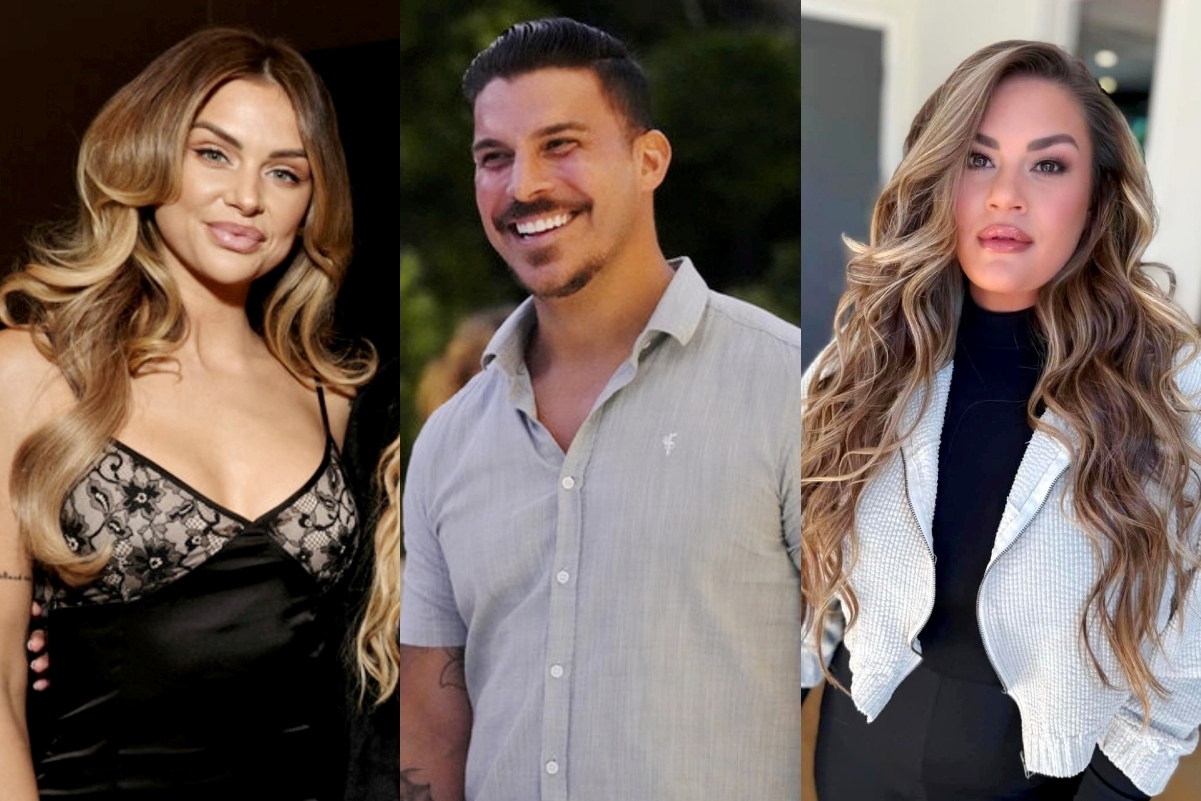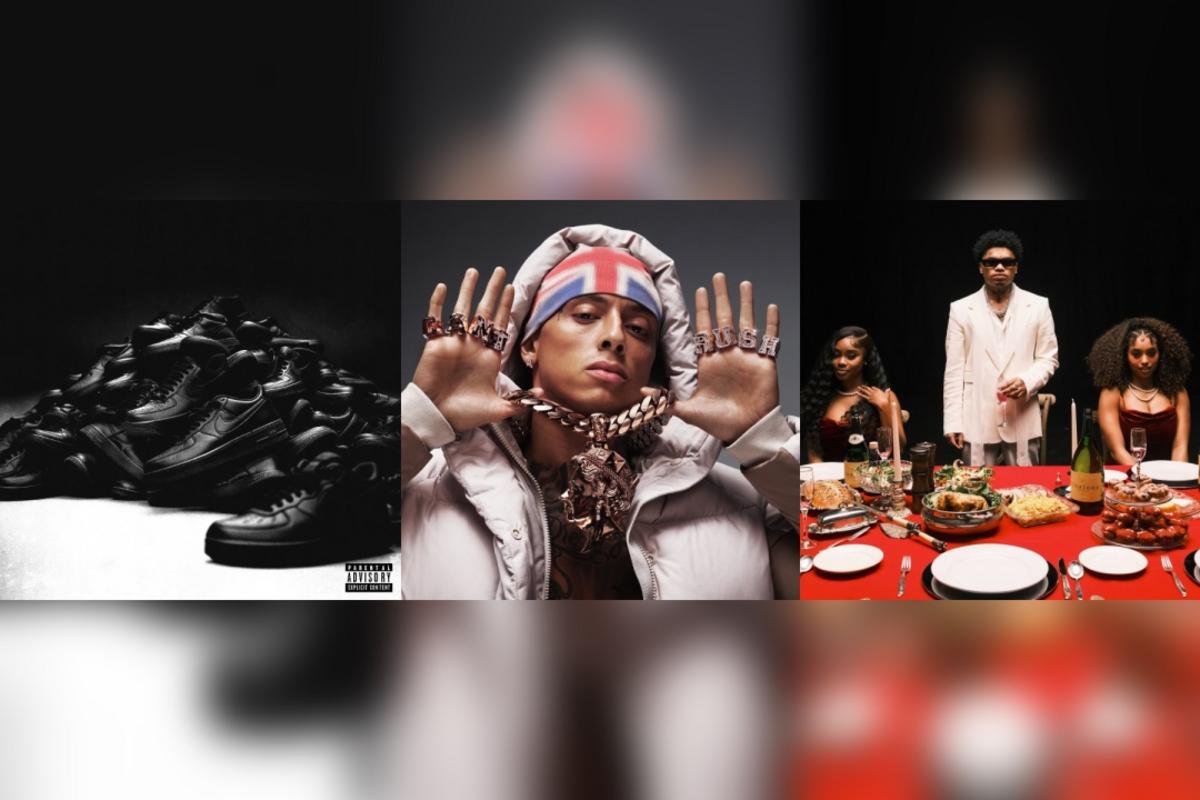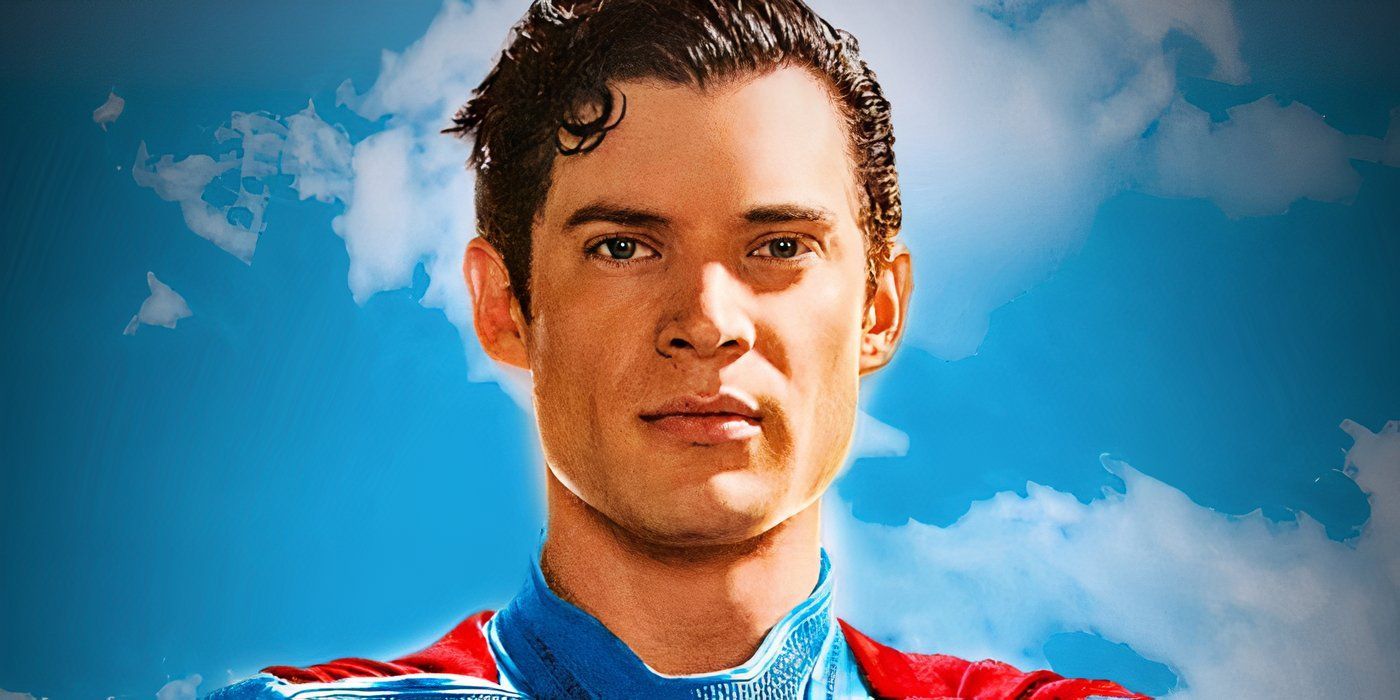Former Butcher Babies co-vocalist Carla Harvey is on her way back with The Violent Hour, the next stage of her career that serves as the “ultimate love letter” with fiancé Charlie Benante of Anthrax fame and a vehicle for expressing their diverse and shared hard rocking influences.
2025 is looking like a big year for Harvey, who is in the process of finalizing her first The Violent Hour, fronting one of her favorite bands growing up in Lords of Acid and venturing back into her other professional passion in the death care industry.
We recently caught up with Harvey and Benante (who played the instruments and wrote music for her upcoming set) to see how the couple worked together, talk about what’s on the horizon and get an update as she takes this crucial next step in her career.
We’re also bringing you the first look at the new video for the recently released single, “Sick Ones,” that’s serving as the introduction into the diverse selection of music the couple have been making of late.
Check out more of the chat below.
Getting into the music, I was curious how this all starts. What comes first as you’re building these songs up together?
Carla Harvey: I have an arsenal of notebooks. I’m always jotting things down, always writing. I always have like a one liner ready to start a song and then hearing what Charlie was writing, like sometimes we’ll be sitting on the couch together and he’ll start playing something on his guitar and I’m like, “What is that you’re playing? I have to have it for a song. I have to have it. Who does it belong to? It’s not a new Anthrax song, right? I’m calling dibs on that.”
The tag in “Sick Ones,” “cut the sick ones loose,” is something that I had written down in a journal from like 1997 from a real life experience I had. I wrote it down all those years ago, and when [Charlie] was playing this riff, I just heard that tagline “cut the sick ones loose” over it, and it ended up being perfect.
Carla, as you said, that dates back to the ’90s. Can you speak to what you were thinking at that point in time and how that mantra has stuck with you through the years?
Carla Harvey: At that point, I was working in a bar and a waitress was working there (she was really kind of a shit person) was having a fit. And I remember the manager dragged her outside, fired her and then he came back in, looked at me and he said, “Sometimes you just gotta cut the sick ones loose.” Those words just kind of stuck with me.
The word gets tossed around a lot, but I’ve always been an empath. I was an extremely empathetic kid. I’ve gotten stuck in a lot of toxic environments with people because of that quality. I want to make everything work. I want to make everything alright. Sometimes, at the end of the day, you can’t help a situation, you can’t help a person. You just have to get them out of your life at whatever cost that may be. .
So throughout my life, I’ve thought about that phrase, }cut the sick ones loose.” Sometimes it’s the hardest thing to do in your life, but sometimes you gotta do it.
The song also includes one of my favorite lyrics I’ve ever written. It’s so silly, but it’s “choose amputation for your situation.” And I just thought it was so silly and so clever and so fitting for this song.
Is that perhaps your favorite lyric that you’ve ever written? Or do you have a favorite from something else?.
Carla Harvey: God, I helped write six albums with Butcher Babies, so I don’t want to say it’s my favorite lyric I’ve ever written, but it’s one of my favorites.
A lot of the lyrics on this album that we’re working on, and I think because it’s the first album that I’ve truly done that is really centered on my thoughts, my feelings, my emotions, and mine alone, it’s like I don’t even know how I’m gonna perform these songs to be honest, live. Because some of them are so emotional and bring up so much meaning for me. So there’s a lot of favorite lyrics on this album.
The Violent Hour, “Sick Ones”
Carla, we’re gonna put the “Sick Ones” video here for Loudwire. You get to play a variety of roles with these different personalities with different looks. Did you have a favorite as you were creating this video? And of all the different personality traits that are portrayed here, is there one that tends to annoy you more than the others?
Carla Harvey: The funny thing about the video is that I had to figure out what I was going to do for a video since my band is not in place. I never wanted to be a solo act. I definitely am going to have a band. We’re looking for the perfect band members right now to go out on tour. But I wanted to make an impactful video. But how do you do that when it’s just you and the song?
This song is about cutting toxic people out of your life and not letting people dull your shine or steal your energy anymore. But I also wanted to kind of flip it on its head a little bit and lend to the idea that sometimes you have to cut the toxic parts of yourself out.
In the end of the video, maybe I didn’t. Maybe I didn’t cut them all out, but I’ve at least learned how to live peacefully with them. While the song isn’t about the toxicity within yourself necessarily, I wanted to kind of make a video flipping the idea of cutting toxic people out of your life on its head and just give it another even deeper look at it.
That’s the great thing about songs. You can kind of interpret them however you feel. I’ve gotten so many messages from people saying, “I fucking needed this song today. My boss has been getting on my nerves, or this person’s getting on my nerves, and I needed to hear this.” Or “This is gonna be my new war cry for the summer.” So it’s been really cool to see how other people have incorporated it with their life.
I’m a goth kid at heart. I think the pessimistic character was my favorite to dress like, but also the completely manic girl in the green furry coat was fun. We all have little bits and pieces of different characters in us. We all have intrusive thoughts and different characters to ourselves. And I thought it was fun to bring them all out for the day. (laughs)
the violent hour sick ones video graphic
While we’re on “Sick Ones,” we’ve obviously got a pretty big name guest star on here with John 5 joining in. Can you talk about how he became part of this song and what the relationship is?
Charlie Benante: I’ve been friends with John for a long, long time. And usually when John and I are talking, usually the conversation goes into KISS at some point during every conversation we have.
But John had asked me to play some songs on his record. But this song, I don’t know why, but I just heard him on it. I thought he could bring something really special to it and just be John on it and just rip it, so I sent it to him, and I didn’t even have to say anything. It came back, and it was just perfect. I mean, perfect.
I always feel like a lead guitar section should have a great intro, and then the middle section should also be very catchy and memorable and then leave really strong. John just threw in a bunch of what I call Beethoven shit and just some weird sounds that was perfect for the song. It sounded sick.
Carla Harvey: It’s so perfect and it’s so chaotic. The first time that I heard it when it came back from John and Charlie played it for me, I cried. I was like, “I can’t believe that that solo is on my song. It’s so fucking cool.”
Hearing where you’re going musically, there’s such diversity there and a broader range of material. Carla, Charlie, within both of your bands, obviously people expect a certain sound, but with Carla just starting fresh here on this new record, how was it to basically have a clean slate and to put your own personal stamp on it?
Carla Harvey: Having a clean slate is refreshing on one hand, but really scary on the other because people are so judgmental. No matter what genre of music you’re in, people like things to stay exactly the same.
When I was a kid, I had such a huge variety in my taste of music. I was a teenager in the 90s when I was assaulted with all different kinds of music from Guns ‘n Roses to Pantera to Lords of Acid to Failure and Everclear and I loved all of it. I didn’t feel like I had to choose between these different genres.
When we started to write my songs, I found that we were lyrically, vocally and melody wise diving into what I loved as a kid, which was that very kind of ’90s sound. There’s a little bit of riot grrrl in some of it.
It’s just really refreshing to try new things, but also scary because you don’t know how people will react. People like when things remain the same and they want me to keep doing the same guttural screaming that I’ve always done, which I love. I loved what I’ve created in the past, but, man there’s just so many things I also want to try and do.
Charlie Benante This gives me the opportunity to write songs that I’ve had laying around for quite a bit because they didn’t fit the format of my other band or bands.
“Sick Ones” was originally a punk rock song that I had laying around for a while. And Carla heard it, and she said, “What is that?” There’ll be times when I’m sitting on the couch with a guitar and I’ll be playing something and she’ll be like, “What’s that?” I’m like, “Right now it’s nothing, but it could be something.”
During the pandemic, I did a bunch of these songs and videos because I was bored and needed an outlet. And I was doing a series of these videos, and two of the songs I asked Carla to sing, one was a Tom Petty cover, and the other one was a Massive Attack cover. And the Massive Attack cover, I kind of pushed her, and it was uncomfortable at first for her, but I knew that she had the goods to deliver. So once I heard that, that gave me the freedom to write songs that I knew she can handle.
Charlie Benante, Carla Harvey & Ra Diaz, “Teardrop”
It was a very organic thing. It wasn’t contrived or planned. It came out of making music. Music is fun. Music is great. Music inspires you. Music inspires me. And that’s what this should be.
Carla Harvey: There’s a lack of diversity on the radio nowadays. I think people get used to hearing this very cookie cutter shiny sound so much that anything else sometimes sounds wrong to their ears. But I will say since we released “Sick Ones,” people have been so complimentary, and they’re like, “Wow, this is so different. It’s got this life to it that I haven’t heard in songs lately.” And I think it’s because we didn’t put that very digital shine on it that a lot of bands have nowadays.
Charlie Benante: There’s life to it. There’s real drums on it. Nothing is perfect. It has a mistake or two. It’s real.
If I go back to the mid-’80s when you had bands like Metallica, Anthrax, Slayer and Megadeth, those are considered the “Big 4.” Those four bands sounded completely different from each other. Why can’t you do that these days?
I know you’ve been a couple for a while, but I was thinking about what this must have been like for you. Obviously, you got the great chemistry together, but what was it like the first time you tried to work musically together? Was there any apprehension, or were you like “Oh, thank God, that worked?”
Carla Harvey: I think, to be honest, it’s like intimacy on a deeper level to work with someone in that capacity. So it’s really beautiful. We kind of started discovering this side of our relationship, even though we always wanted to write together, during the pandemic. We sat and did the videos that we did together and were creating art together, drawing together, painting together, creating together. The best way that I can describe it is just a deeper form of intimacy on all levels.
But it’s also hard if you disagree and you’re a couple on something, so that aspect can be hard. We don’t disagree much on any ideas, luckily. But I think sometimes he doesn’t like my lyrics (laughs), but that’s not a dig at me. We just have different opinions on things, which is awesome. You should. And you should say, “I think this could be better” or “How about if we did this instead?” If you don’t have the ability to critique each other a little bit, that sucks. You should be able to have a separate opinion.
Charlie Benante: The thing about how this all came to fruition, I was just motivated to basically do this for her. It was motivation for me, and I’m the best when I’m challenged. You got five minutes to finish this, and then, boom, something happens.
In between the Pantera stuff, in between doing the Anthrax record, I found time to do this and I really enjoyed it. That’s the thing, because it was a different way of writing. Friends of mine who’ve heard the songs, they feel like the “Sick Ones” could possibly be in an Anthrax song, which maybe, maybe it could. But I felt it fit her voice better. And it shows, of course.
But being motivated, there’s nothing better. When you find something and then it just clicks and you go with it and then it just helps the next one and then the one after that.
Carla Harvey: What Charlie did for me is that he took me out of this deep depression and funk I was in when he wrote me all these songs that I could put my voice over … they were mine. It was just amazing. I always say it’s the best. We write love letters to each other all the time when we’re going on a trip or whatever. That was the ultimate love letter to me, the best one he did.
Charlie kind of gave me my voice back. It was a struggle at first, writing music on my own and trying to figure out how I was going to sing things. I felt like I couldn’t do it. And he kept encouraging me to try new things. Eventually, I’d come out of the studio and I’d be like, “Damn, I was hitting such high notes today.” And it’s so easy now and it’s so much fun. It felt like fun again. Music being fun again was a huge gift to me.
Honestly, it comes through in the music that you’re passionate about it. It sounds like you’re both having fun with it and infusing it with something that you love.
Charlie Benante: That’s what music should do. Just what you said. I’m sure you’re like me. You have your favorite bands, you have your collection of music that you play forever. And you worship this type of stuff. That’s how that Anthrax record came about, because I had the title Worship Music because that’s what I do. I worship it.
There’ll be something that the Beatles will release 50 years later and I’m right there in the front ready to get it, because I still love it. I still appreciate that. But I hope people hear these songs and realize that these are songs. This is not just some kind of fabrication or let’s put this out and capitalize on this. No, this is a group of songs that you should really enjoy.
Charlie, you mentioned the pandemic series, which I enjoyed watching with all the great covers. I know the other Anthrax guys have their side things and obviously you’ve done Pantera, but would this be an outlet for you in the future as well? Beyond this record, do you foresee continuing to write for Carla’s band?
Charlie Benante: I would, yeah. I would continue behind the curtain making music for her, because for me, this is just the first step. Wait until the second, right? Wait till the third record. Wait till the growth of that happens, because that’s what I’m looking forward to.
I wanted to establish that there’s different moments on these songs There’s different sounds. You can’t paint us into a corner. We can’t paint ourselves into a corner because it’s so diverse. And we’ll try this and we’ll try that, but at the end of the day, it’s all about her and how she wants to continue with this.
I look forward to her getting a band together and taking these songs out to people. And I can’t wait to see the first show when you see people singing the songs back to her.
Carla, rather than going by your own name, you’ve chosen the Violent Hour as the moniker. You mentioned the fact that you want to get a band together. How does the Violent Hour moniker best represent what you’re doing musically and the overall idea of what you want to get out there?
Carla Harvey: When I came up with the name, I was sitting at a bar in Nashville with my best friend and I had been writing songs all day. The name just kind of came to me, the violent hour. Where we live, there’s this time of night when you hear all the animals come out at three, four in the morning while the world is asleep, except for these feral animals, the cats and the coyotes. That’s what the violent hour is to me.
There’s just all kinds of death and sex and everything out there in the woods during this violent hour time of night, and you can hear the screeching. I kind of loved that idea, and I kept going back to it, and I’m like, that’s what this is about.. It goes even deeper than that, though.
When you’re in a band and you’re on the road and there’s 24 hours in the day, but sometimes the other 23 suck. But that one hour that you’re onstage is awesome, that violent hour. But the original idea came from the sounds that you hear behind the house in the middle of the night when you’re supposed to be asleep.
Carla, you’ve had a separate career within the mortuary science industry. I was wondering if there’s anything from your background and dealing with death and grieving that you’ve been able to apply to how you approach your experience in the music industry.
Carla Harvey: I think that I write from what I know from myself and my experiences. So I think that there has been recurring themes of grief or death. But, I mean, isn’t that also one of the most universal themes that we have? Loss is something that we all feel.
Almost every day we lose something, whether it’s a relationship or there’s an actual death or you lose a job or lose a partnership. It’s just something that everybody can relate to. So I think that I do use a lot of that in my work.
READ MORE: Carla Harvey’s Post Butcher Babies Job Is Still Pretty Metal
And also the death industry is very visceral. Metal music and music in general is very visceral. And I think I’m the kind of person that likes strong emotions. I like powerful things. So that’s what drew me to death care, was that ability to help, And I think, with music I have the ability to help kids who feel like they’re the only person that feels a certain way. If they can understand that you’ve been there, too, through lyrics, that’s a hugely powerful thing.
I know this past year you’ve gotten back into death care a bit more in partnering with Parting Stone. I wanted to give you a chance to discuss that transition and how you got involved with the company.
Carla Harvey: On our last tour, I love this site called Death Care Jobs. On the last tour I did with Butcher Babies, I was looking and I found the perfect job to where I could still go on tours and be back in the death care space.
I’ve always been very drawn to helping people. Even when I wasn’t a mortician anymore (I had to quit my first big embalming job to go on tour with Butcher Babies) I started t my own grief counseling company in 2016 called Good Grief and I was able to help people through that. I’m especially proud of my work with Vets, disenfranchised kids and folks with brain injuries.
But being back in the death care space full time, it’s been a total gift for me because I’m able to do something that I’m passionate about and still have the freedom to play music. It’s so hard when you’re a musician nowadays.
Charlie’s from an era of music where they’re more secure, they don’t have to go out and have a regular job. When they get off tour, they’re fine. There’s such a beauty in that, just being able to just be a musician. But unfortunately, that is not the case with most bands from my era. People go home, they have to have some kind of work lined up. And so that work you should be passionate about, which again I feel very, very lucky to have something that I absolutely love that I do.
The company that I work for is a groundbreaking death care company. Super innovative. We make stones out of people’s ashes so they can have a continuing bond with them and hold them in their hand.
Carla, one more thing that’s coming up as well. You mentioned earlier being a big fan of Lords of Acid growing up. Seeing what that was like back in the day, how does it now feel to be coming into this experience where you are the person that is the vessel for this music and putting that out there?
Carla Harvey: When I was a kid, I always say there were three bands that I really, really loved at the time, and it was Guns N Roses, Pantera and Lords of Acid. All three are completely different kinds of bands. I would go down to the city club in Detroit and dance all night to the Lords of Acid and similar music. It was just so much fun.
Lords of Acid is very tongue in cheek and kitschy and they have a different Acid Queen for every album and it’s a very short tour cycle. So it’s low investment but so fun to do just for a quick little turn as the Acid Queen.
Carla, simply put it sounds like this is one of the best periods of your career, both personally and professionally. Would that be a fair assessment?
Carla Harvey: I’m happier than I’ve been in a decade. I feel excitement I haven’t felt since I was first starting off writing music and playing in bands. I find myself squealing with joy.
For example, we got to shoot the video for “Hell or Hollywood,” my next single, in an iconic location and I was on the phone discussing it, and when I found out, I shreiked across the room. Charlie’s like, “What are you screaming about?” But that’s the kind of excitement that I feel now. I find myself just like I’m on fucking 10 espresso shots when I talk about the band.
I’m so excited and I feel happy and healthy and ready to just fucking go out there and play these songs for people. Mentally, I’m in such a good place and so happy.
Thanks to Carla Harvey and Charlie Benante for the interview. Stay up to date with The Violent Hour through their website, Facebook, X, TikTok and Instagram accounts. Keep an eye out for more new music coming from The Violent Hour.
The Jobs 26 Rock + Metal Musicians Had Before They Were Famous
Needless to say… they quit their day jobs.
Gallery Credit: Lauryn Schaffner, Loudwire






